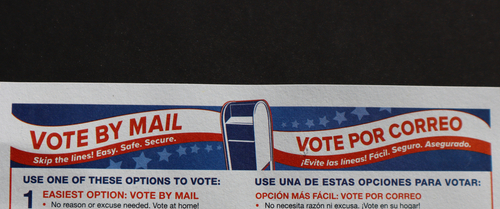
There are ways to conduct safe elections even during a pandemic like COVID-19, but despite lessons provided by recent primary elections, researchers from RAND warn that nine states have adopted no policies key to safe voter participation in the 2020 presidential election.
This lack of preparedness is a problem that researchers assessed through the availability of things like online registration programs, vote-by-mail options without required excuses, witness or notary signature requirements for mail-in ballots, and whether states offered early voting periods.
“The COVID-19 pandemic presents a severe threat to states’ 2020 election plans, which will have higher turnout and higher stakes since this is a presidential election year,” Jennifer Kavanagh, co-leader of the research team and a senior political scientist at RAND, said. “To be prepared to conduct elections during a pandemic, states will need registration and voting options that reduce crowds, minimize direct personal contact, and limit common access to high-touch surfaces.”
Despite the nine that made no such in-roads, 12 states and the District of Columbia have moved toward flexibility in their elections and made them safer as a result. Other states have instituted only temporary modifications to their voting processes — such as relaxing absentee ballot excuse requirements — which will help for the immediate issue. However, researchers warn those modifications will ultimately do little to aid resilience in the long term.
The problem is geographical as much as anything. Western states tend to have more flexible policies, RAND noted, while Southern and Northeastern states are more rigid in their policies, making them trickier to adapt to new necessities, like social distance needs. Of the 50 states, 40 offer early voting options, and six others offer early voting for those who meet certain qualifications. Of those that do, eight have early voting periods that last longer than 30 days, while 13 provide periods between 16 to 30 days.
Emphasizing safety will do little to threaten ballot integrity, researchers noted. Even expanded vote-by-mail options would only provoke a slightly elevated risk compared to in-person voting. If states do not act quickly, though, they may not be able to ensure safe in-person voting. Additional equipment, workers, and sanitation practices will be necessary. More equipment and workers will also be necessary for the influx of absentee ballots, and states will need to account for potential delays in postal delivery.
The one area researchers agreed should not move forward: online voting, due to inherent cybersecurity risks.




